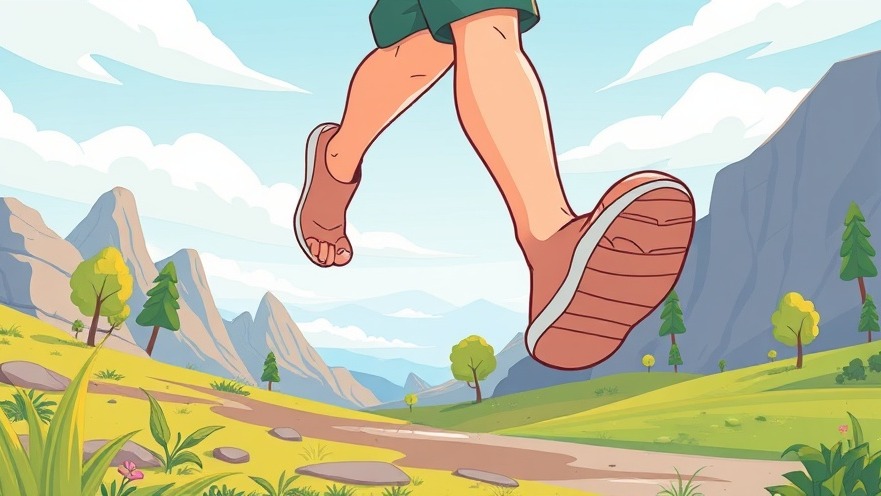
Understanding Foot Signals: What Your Feet Reveal About Your Health
As we age, paying attention to the subtle signals our bodies send becomes increasingly vital, particularly when it comes to our feet. Often overlooked, foot health can provide remarkable insights into our overall well-being. For those over 50 in Louisiana, understanding these signs could make all the difference in managing health proactively.
In 'Warning Signs in Your Feet!', the discussion dives into various health indicators reflected through foot symptoms, prompting our deeper analysis of these crucial signs that can impact seniors' health.
The Itching and Heat: Warning Signs for Liver Health
If your feet itch or feel unusually hot, these could be indicative of liver problems. The liver plays a crucial role in filtering toxins, and its distress can manifest in discomfort far from its location. One remedy often discussed is TUDCA, a supplement that might help maintain liver health. However, it’s essential to consult with healthcare professionals before trying new treatments, especially for older adults who may be on multiple medications.
Cramps and Sleep Disruption: Magnesium Deficiency Alert
Experiencing cramps in your feet as you try to drift off? This could be a sign of magnesium deficiency. As we age, nutrient absorption decreases, often leading to various deficiencies. Magnesium plays a critical role in muscle function and sleep regulation. Ensuring sufficient intake through diet (like leafy greens and nuts) or supplements can vastly improve sleep comforts and reduce nocturnal leg cramps.
Edema: Swelling Tied to Serious Conditions
Swelling, or edema, in your feet may point toward more serious underlying conditions such as liver or heart problems. Particularly in Louisiana, where heart disease rates are significant, this symptom should not be ignored. Monitoring your foot health allows for early detection and potentially less severe interventions. Always seek out your doctor if you notice sudden swelling, as it could indicate fluid retention related to cardiovascular issues.
Discoloration and Risk for Diabetes
Darkening or discoloration in the soles of your feet, sometimes resembling a brownish or rust color, can be alarming. This may indicate higher blood sugar levels, often associated with type 2 diabetes. Understanding this symptom empowers seniors to seek timely diabetes screenings. Given Louisiana's prevalence of diabetes, engaging in regular foot examinations and monitoring changes can greatly enhance health outcomes.
The Connection Between Foot Tingling and B1 Deficiency
If you notice tingling sensations in your feet, it might be time to check your vitamin B1 levels. B1, or thiamine, is essential for glucose metabolism. A deficiency in this critical nutrient often links to unstable blood sugar levels, particularly in diabetic patients. This underscores the importance of balanced nutrition and may warrant dietary adjustments to ensure proper vitamin intake.
The Importance of Regular Foot Check-Ups
For seniors, regular foot check-ups are not merely routine but a pivotal part of your health care. As highlighted, feet can betray signs of various underlying health issues, and screening for them can lead to critical early interventions. Whether it's at a podiatrist's office or during an annual check-up, do not hesitate to raise concerns about any unusual foot symptoms.
Actionable Steps: Caring for Your Feet
The journey to maintaining foot health is simple yet requires mindful attention. Here are some straightforward steps to get started:
Stay Hydrated: Proper hydration aids circulation and overall health.
Monitor Your Diet: Ensure you’re getting enough vitamins and nutrients, particularly magnesium and B1.
Seek Medical Advice: Don’t hesitate to consult with healthcare providers regarding any unusual symptoms.
Regular Exercise: Engage in activities that promote foot and joint health.
Your feet might be sending you crucial signals, and by paying attention to them, you can take charge of your health.
 Add Row
Add Row  Add
Add 



Write A Comment